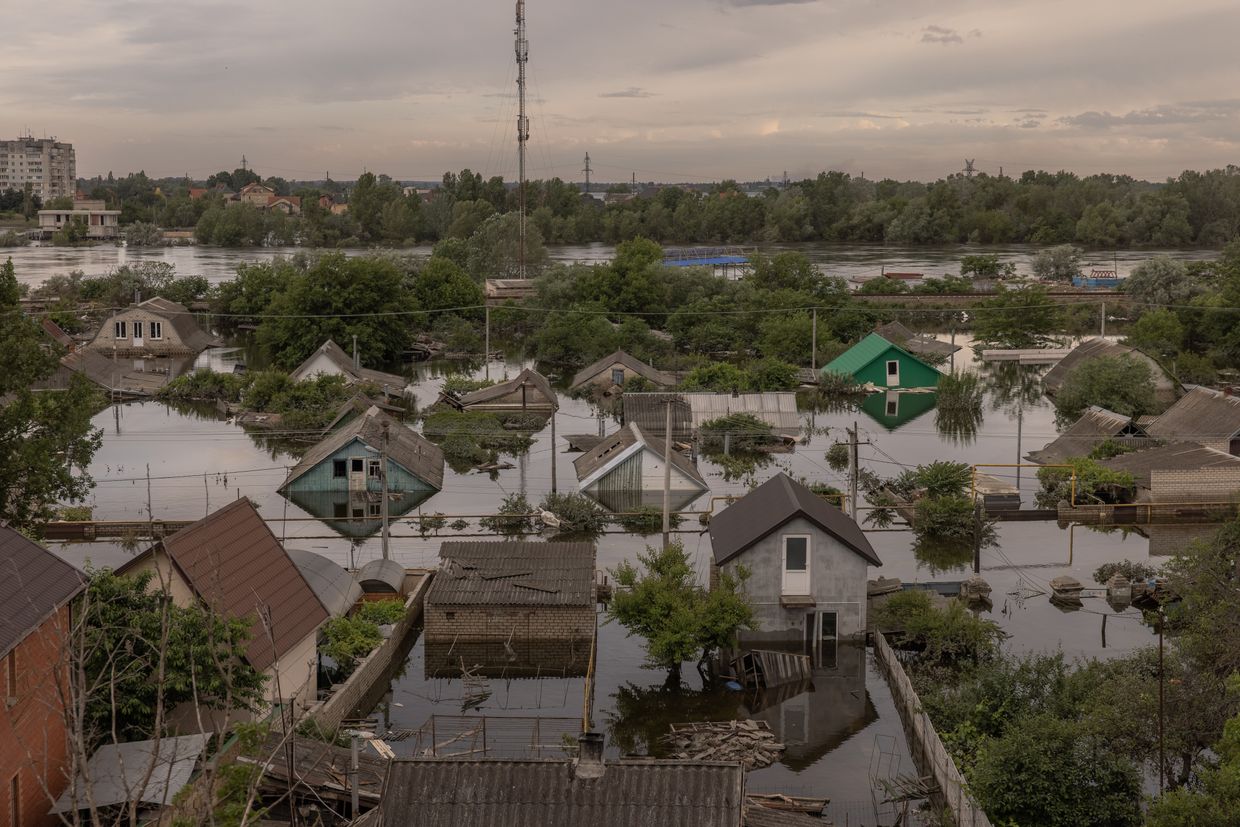Kyiv Hydroelectric Power Plant has 'no critical damage' after Russian mass attack, governor says

Kyiv Hydroelectric Power Plant was not critically damaged in the recent Russian attack on Kyiv Oblast, Governor Ruslan Kravchenko said on Aug. 26 on national television.
Russia launched on Aug. 26 its largest attack on Ukraine since the start of the full-scale invasion, using 127 missiles and 109 drones.
Russian forces targeted 15 oblasts, including Kyiv, damaging civilian and energy infrastructure. At least seven people were killed, and 47 suffered injuries, including four children, according to the State Emergency Service.
A dam in Kyiv, part of the Kyiv Hydroelectric Power Plant, was also struck on Aug. 26. Following the morning attack on Kyiv Oblast, the Kyiv dam was closed for means of transport until 5 p.m. local time.
The Kyiv Independent reporters on the site confirmed that the power plant appeared to have some localized visible damage and didn't appear to be in a critical state.
Andrii Kovalenko, the head of the counter-disinformation department at Ukraine's National Security and Defense Council, said that hydroelectric power plants cannot be destroyed by missiles.
Kovalenko added that the attack on the Kyiv dam should not be compared to the destruction of the Kakhovka dam in Kherson Oblast in 2023, as it was blown up from the inside.
Russian troops blew up the Kakhovka Hydroelectric Power Plant and the adjacent dam in Kherson Oblast on June 6, 2023, causing a large-scale humanitarian and environmental disaster across southern Ukraine.
The floods caused by the breach killed over 30 people in Ukrainian-held territories and between dozens and hundreds more in the Russian-occupied areas.
At least tens of thousands of people were affected by the floods, while hundreds of thousands were left without access to clean drinking water. The breach also resulted in extensive damage to the environment and agriculture.
Critical infrastructure facilities were destroyed, and the draining of the Kakhovka Reservoir upstream from the dam threatened the operation of the Russian-occupied Zaporizhzhia Nuclear Power Plant.












